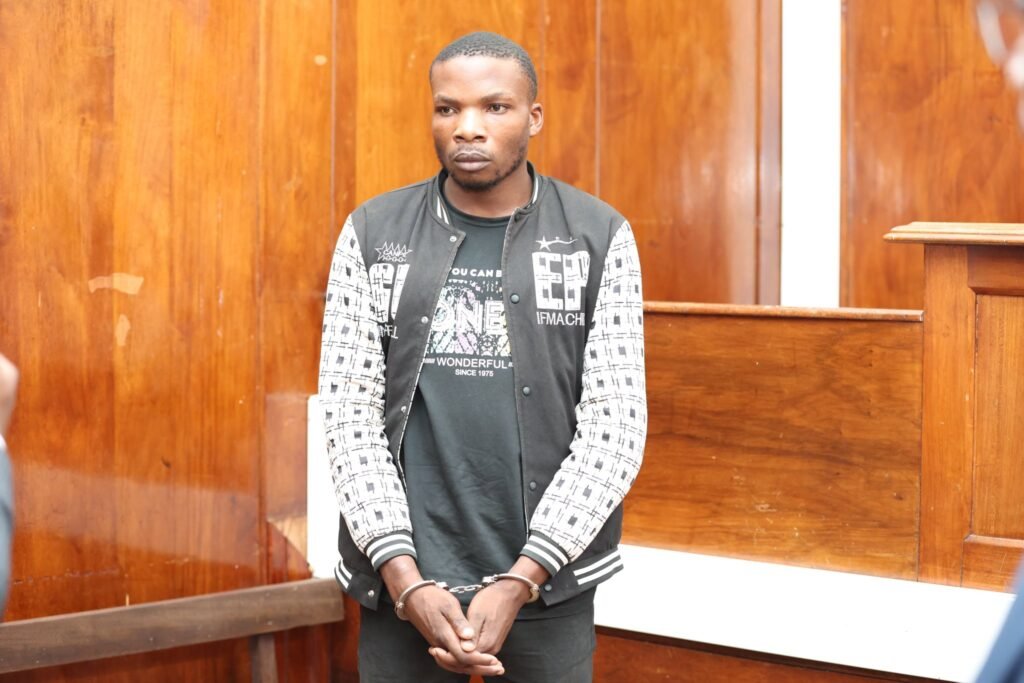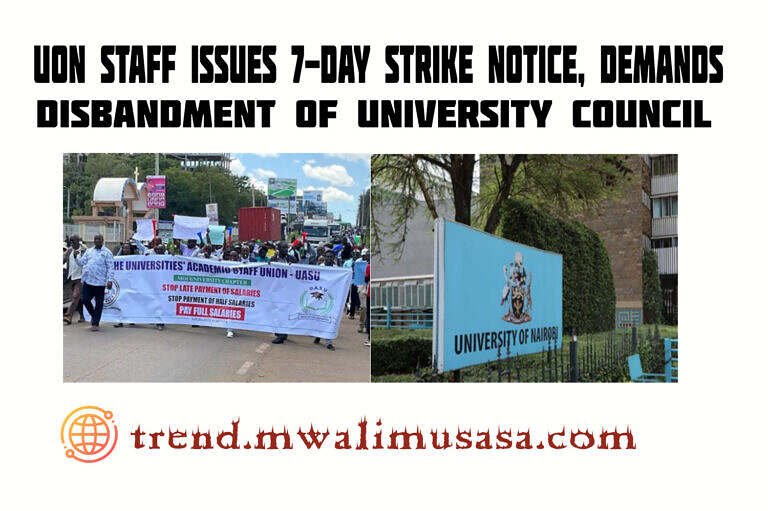
Introduction to the Case
The murder of Willis Ayieko Onyango has garnered significant attention in the Kisumu area, highlighting both the tragic loss of a community member and the broader challenges related to safety and crime in the region. Onyango, a respected figure in the community, was reported missing on the evening of March 15, 2023, prompting concern and a search effort among friends and family. Tragically, his body was discovered days later under circumstances that indicated foul play.
The investigation into Onyango’s death unfolded rapidly, with detectives working diligently to gather evidence and piece together the events leading up to this devastating incident. The inquiry revealed that the victim had been involved in a dispute shortly before his disappearance, and witnesses indicated they last saw him in the company of an acquaintance. This pivotal information helped authorities identify a suspect, who was subsequently detained for further questioning.
As the situation progressed, the suspect was formally charged with the murder of Onyango, prompting his first appearance in the Kisumu High Court. This case has ignited discussions within the community regarding crime rates and safety measures, as residents seek reassurance that justice will be served. The arraignment of the suspect has also led to increased scrutiny of the local law enforcement protocols and judicial processes as the community awaits clarity on the events surrounding Onyango’s untimely death.
This case symbolizes not just a personal tragedy for the family of Willis Ayieko Onyango, but also serves to highlight the urgent need for reforms in addressing violent crime locally. As proceedings continue, many in Kisumu are keenly observing the developments, hoping for a resolution that honors the memory of the victim while ensuring accountability for those responsible.
Details of the Arraignment
The arraignment of the suspect in the murder case of Willis Ayieko Onyango occurred on [insert date] at the Kisumu High Court. This significant legal event marked the formal presentation of charges against the accused, which primarily include first-degree murder and additional counts related to the unlawful use of a firearm. The prosecution detailed the alleged events leading to Mr. Onyango’s tragic death, emphasizing the evidence gathered during the ongoing investigation.
During the proceedings, the presiding judge allowed both the prosecution and the defense to present their initial statements. The prosecuting attorney outlined the basis of the charges, highlighting witness testimonies and forensic evidence that suggest the suspect’s involvement in the unlawful act. Key aspects included a timeline of events surrounding the incident and the alleged motive behind the crime, which the prosecution argued was grounded in personal conflicts and prior interactions between the suspect and the victim.
In response, the defense attorney contested the charges, asserting that the suspect was not present at the scene during the time of the alleged murder. The defense further emphasized the need for a thorough examination of the evidence to ensure a fair trial. Additionally, the defense raised concerns over certain testimonies, arguing that some might be unreliable or biased.
As the arraignment progressed, both parties prepared for future hearings, with a preliminary date set for the continuation of proceedings. The judge expressed the importance of allowing the judicial process to unfold intact, thus ensuring that justice is served. This arraignment is a crucial step in the legal proceedings, ultimately paving the way for further developments in this high-profile case.
Victim Profile: Willis Ayieko Onyango
Willis Ayieko Onyango was a respected member of his community, known for his unwavering commitment to those around him and his dedication to personal advancement. Born and raised in Kisumu, Onyango embraced opportunities for education and self-improvement, exemplifying the potential of hard work. He attended local schools where he excelled academically, later pursuing higher education which provided him with a foundation for a successful career.
Onyango was not only a diligent student; he was also deeply involved in community service. From a young age, he contributed actively to various local initiatives, particularly those focused on youth empowerment and education. Friends and family fondly recall his passion for mentoring young people, encouraging them to pursue their dreams and strive for excellence. His influence extended beyond his immediate circle, as he worked tirelessly to improve the living conditions and educational opportunities within Kisumu.
In his professional life, Onyango held positions that showcased his leadership skills and commitment to social causes. He was particularly noted for his role in advocating for local businesses and startups, fostering an environment for economic growth in his community. This not only helped enhance the livelihoods of many individuals but also positioned Kisumu as an emerging hub of entrepreneurship. His contributions to local development did not go unnoticed, and he often received accolades for his efforts.
Willis Ayieko Onyango was a family man who cherished his relationships with his loved ones. His family described him as a devoted husband and father who placed great value on spending quality time together. The loss of such a vibrant and impactful individual has sent shockwaves through the community, highlighting the tragic consequences of violence and the profound impact one person can have on many lives.
The Suspect’s Background
The individual accused in the murder of Willis Ayieko Onyango has a complex and multifaceted background that shapes the current legal proceedings. With a history marked by prior encounters with law enforcement, the suspect’s past raises questions about their character and possible motivations behind the alleged crime. It is crucial to understand this context to appreciate the dynamics of the case as it unfolds in the Kisumu High Court.
Born and raised in Kisumu, the suspect has lived in the area for many years, establishing roots within the community. Reports indicate that they have been involved in various local activities, which has contributed to their visibility among residents. However, this visibility has not been devoid of controversy. The suspect has faced legal issues in the past, including charges that range from petty offenses to more serious allegations. These encounters with the law suggest a troubled relationship with authority and could potentially provide insights into their recent actions.
Moreover, it is essential to consider the personal circumstances surrounding the suspect. Family ties and socio-economic factors may play a significant role in shaping an individual’s behavior. Interviews with acquaintances reveal that the suspect has experienced significant hardship, including financial struggles and familial pressures. These circumstances might suggest how personal challenges could influence decisions, particularly in high-stress situations like the one in question.
In light of this information, understanding the suspect’s background is vital for grasping the broader implications of their alleged involvement in the murder of Willis Ayieko Onyango. As the case continues, it serves as a reminder of the complexities associated with legal matters and the importance of considering an individual’s history when assessing their actions. This context will likely become increasingly relevant as more details emerge in the ongoing case at the Kisumu High Court.
Key Evidence Presented in Court
During the recent arraignment of the suspect in the murder case of Willis Ayieko Onyango, multiple crucial pieces of evidence were presented that shape the foundation of the prosecution’s argument. Central to the case are testimonies from eyewitnesses who reported seeing the suspect at the scene of the crime around the time the incident occurred. These accounts provide critical context, as they help establish a timeline that suggests the suspect’s involvement in the act.
Forensic evidence also plays a significant role in bolstering the prosecution’s claims. Crime scene investigators recovered various materials, including blood samples and weapon residues, which have been subjected to intensive analysis in forensic laboratories. Preliminary reports reveal that the blood samples collected from the scene match that of the victim, further strengthening the claim of foul play. Additionally, expert testimony regarding the ballistic evidence presented by forensic specialists substantiates the argument that the weapon employed in the crime was indeed registered to the suspect.
Furthermore, digital evidence, such as mobile phone records and surveillance footage, was introduced in court. The recordings from nearby security cameras appear to show the suspect near the vicinity shortly before and after the murder took place, drawing a direct line of access to the crime scene. Together, this amalgamation of witness accounts, forensic analyses, and digital corroboration forms a substantial basis for the prosecution’s case against the suspect.
These pieces of evidence not only help outline the events leading to the tragic murder of Willis Ayieko Onyango but also aim to clarify the suspect’s role in this incident, as the court progresses toward a resolution in this high-profile case. Each element of evidence is meticulously scrutinized to ascertain its validity, ensuring that justice prevails.
Reactions from the Community
The recent murder of Willis Ayieko Onyango has sent shockwaves through the Kisumu community, prompting a myriad of reactions from local residents, community leaders, and advocates for justice. Many individuals have expressed their grief and outrage following the tragic event, highlighting the profound impact it has had on the fabric of their neighborhood. A local shopkeeper, who wished to remain anonymous, articulated the communal sentiment by stating, “This has been a wake-up call for us. We can no longer ignore the violence that is creeping into our lives.” Such statements reflect a broader concern about safety and security in the region.
Community leaders have also voiced their apprehension regarding the state of law and order. A prominent figure within the local council, speaking during a recent town hall meeting, called for immediate action to address the rising crime rates. “We need to work together to create a safer environment for our children and families. The murder of Willis Ayieko Onyango is a grim reminder that we cannot take our safety for granted,” he emphasized. This sense of urgency demonstrates a collective anxiety that resonates with many residents.
Additionally, various advocacy groups have taken this incident as an opportunity to rally for justice. An activist from a local human rights organization remarked, “The community has witnessed too many instances of violence go unpunished. We demand accountability for this horrific act.” This call for justice underscores the community’s desire not only for clarity surrounding the case but also for broader systemic changes to prevent future incidents. Community discussions have increased, fostering an environment where residents feel empowered to voice their concerns and demand action in the wake of the tragedy. The murder of Onyango has undeniably unified the community, highlighting the need for solidarity in the face of adversity.
Legal Implications and Next Steps
The arraignment of the suspect in the murder of Willis Ayieko Onyango marks a crucial stage in the judicial proceedings. The legal implications of this case are significant, primarily focused on the potential outcomes for the accused individual. Charges such as murder carry severe penalties, often including lengthy prison sentences or even the death penalty, depending on jurisdiction and circumstances surrounding the crime. As the case continues to unfold in the Kisumu High Court, the legal process will follow a methodical trajectory, dictated by established judicial protocols.
Following the arraignment, various critical hearings are expected, including bail applications, pre-trial motions, and potentially a hearing to establish the trial date. The next steps typically involve a discovery phase, where both the defense and prosecution gather evidence and statements. This stage is vital for building a comprehensive argument and ensuring that each side is adequately prepared for trial. Furthermore, the prosecution is anticipated to disclose all evidence supporting their claims, allowing the defense team to formulate counter-arguments.
Court dates are crucial in maintaining a streamlined process, and stakeholders are likely to receive notifications regarding future hearings. It is essential for the public to understand that this legal journey can be prolonged, reflecting on the complexities often associated with high-profile murder cases. The timeline for resolution may stretch, requiring patience from the community and the families involved. Additionally, any plea deals or negotiations between the defense and prosecution could shift the case’s trajectory considerably, affecting the ultimate outcome for the suspect.
As the judicial process continues, observers must remain aware of the accompanying legal ramifications and potential societal impacts. Each step taken in this case illustrates the intricate nature of the judicial system and emphasizes the importance of due process for all parties involved.
Media Coverage and Public Interest
The ongoing trial concerning the murder of Willis Ayieko Onyango has garnered significant attention from various media outlets, reflecting the public’s deep interest in the case. Local news organizations have played a pivotal role in disseminating information, reporting developments from the Kisumu High Court. Daily updates and in-depth analyses provide insights into the legal proceedings, offering a window into the judicial process as it unfolds. The media’s coverage aims to keep the public informed, highlighting not only the key hearings but also the intricacies of the legal arguments presented by both the prosecution and defense.
Moreover, social media platforms have become a vital forum for public discourse surrounding the case. Users engage with posts, sharing thoughts, reactions, and opinions about the proceedings. This online interaction demonstrates how digital platforms can amplify public interest, allowing individuals to discuss broader implications such as community safety and justice. The conversation often extends beyond the courtroom, touching on societal issues raised by the murder, including crime rates in the region and the effectiveness of law enforcement agencies.
As public engagement increases, it becomes evident that the trial of Willis Ayieko Onyango resonates deeply within the community. Many individuals see this case not just as a legal matter but as a reflection of societal values and concerns. This heightened media focus serves to foster transparency and accountability in the legal system, emphasizing the importance of public interest in judicial processes. The collective attention towards this case underscores the crucial role that media plays in informing citizens and shaping public perception, particularly regarding serious crime and its ramifications. This case, therefore, is not only a trial but also a catalyst for broader conversations on justice and community relations.
Conclusion and Reflection
The arraignment of the suspect in the murder of Willis Ayieko Onyango marks a significant milestone in the ongoing pursuit of justice for the victim and his family. Throughout this case, we have witnessed the intricate process of the legal system as it navigates the complexities surrounding such a grievous crime. High-profile cases like this not only draw attention to the immediate circumstances but also shed light on broader societal issues, particularly around violence and safety in communities.
It is crucial to emphasize the importance of justice, not only for Onyango’s family but also for the community as a whole. Each legal proceeding offers a glimpse into the commitment of judicial authorities to uphold the law and address acts of violence. This reflects a collective responsibility to ensure that similar incidents are met with adequate scrutiny and that justice prevails. As observers, we must remain vigilant in advocating for transparency and accountability within the justice system, ensuring that the voices of the victims resonate beyond the courtroom.
Moreover, the unfolding details of the case serve as a vital reminder of the impacts such tragedies have on individuals and families. Each update from the Kisumu High Court invites us to reflect on the personal toll of crime and the continuous need for community support systems for those affected by violence. It is imperative that as we follow developments in this case, we maintain an awareness of the human stories behind the legal proceedings. In conclusion, staying informed and engaged is essential as the community rallies together not only for justice for Willis Ayieko Onyango but also for a future where such heinous acts are diminished. Let us keep hope alive for a resolution that honors the dignity of the victim and ensures safety for all.



